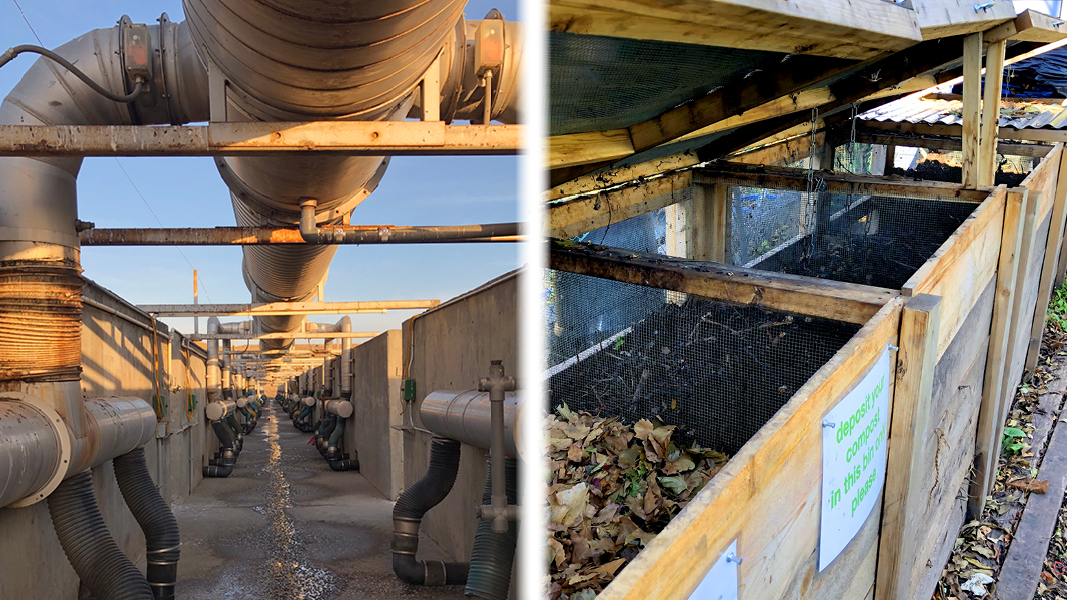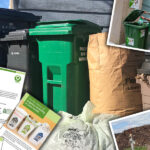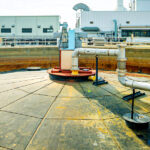Top: Aeration system at large-scale Recology composting facility in Vacaville, CA (left). Multi-bin composting system at community garden in Jersey City, NJ (right). Photos by Nora Goldstein
The U.S. Department of Agriculture (USDA) announced new investments in June to support urban agriculture, including $10.2 million in new cooperative agreements to expand community composting and food waste reduction, and $14.2 million in new grants to support the development of urban agriculture and innovative production projects. Additionally, $18.7 million will fund 75 worthy grant proposals from the 2021 application cycle, which was oversubscribed. “Investing in urban agriculture innovations helps us build a fairer, more transparent food system and promote equity by increasing nutrition security and economic opportunity in underserved communities,” said Natural Resources Conservation Service (NRCS) Chief Terry Cosby. “These projects will help urban farmers create new, more affordable, and better local market options and help urban communities produce fresh and healthy food locally, reducing food waste while building nutrient rich compost.”
Community composting projects funded in 2021 are described on USDA’s community composting webpage (click on 2021 Projects). Among the grantees are:
- City of Richmond, Virginia: Establish a network of household food scrap drop-off stations in collaboration with community gardens, libraries, businesses, and community organizations. Finished compost will be used in community gardens, community-led greening initiatives, and Workforce Training and Development landscaping projects in parks.
- Cincinnati, Ohio: Develop multiple small and medium scale (<500 sq/ft) decentralized community composting and food waste drop-off sites across the City, utilizing city facilities, community gardens/orchards, and existing compost businesses/nonprofit partners to collect vegetative food scraps and create compost to be utilized at multiple urban agriculture sites throughout Cincinnati and beyond.
- Tampa, Florida: Partner with Suncoast Compost, a community composter, to double the number of designated drop-off composting sites from four to eight — creating composting opportunities for all residents regardless of whether they live in multi-family units or single-family homes.
Over at the U.S. EPA, the agency announced that $375 million in funding will be available through President Biden’s Bipartisan Infrastructure Law for new recycling, reuse and waste prevention programs. The Agency published three Requests for Information (RFIs) in the Federal Register, seeking input on the design of these new materials management initiatives. Deadline for responding to the RFIs is July 25, 2022. (The deadline for the battery collection RFI is July 11). To access the RFIs and learn how to comment, visit the Bipartisan Infrastructure Law Transforming U.S. Recycling and Waste Management webpage.
The $375 million in bipartisan infrastructure law funding will develop several new initiatives, including a Solid Waste Infrastructure for Recycling grant program, a Recycling Education and Outreach grant program, a Model Recycling Program toolkit, as well as provide funding to compile best practices for battery collection, recycling, and labeling guidelines. The solid waste infrastructure grants can be utilized by public entities to fund composting and anaerobic digestion infrastructure. The education and outreach grants, for which public entities and nonprofits will qualify, can fund projects such as public service announcements, advertising campaigns, and the development and dissemination of recycling program toolkits.













